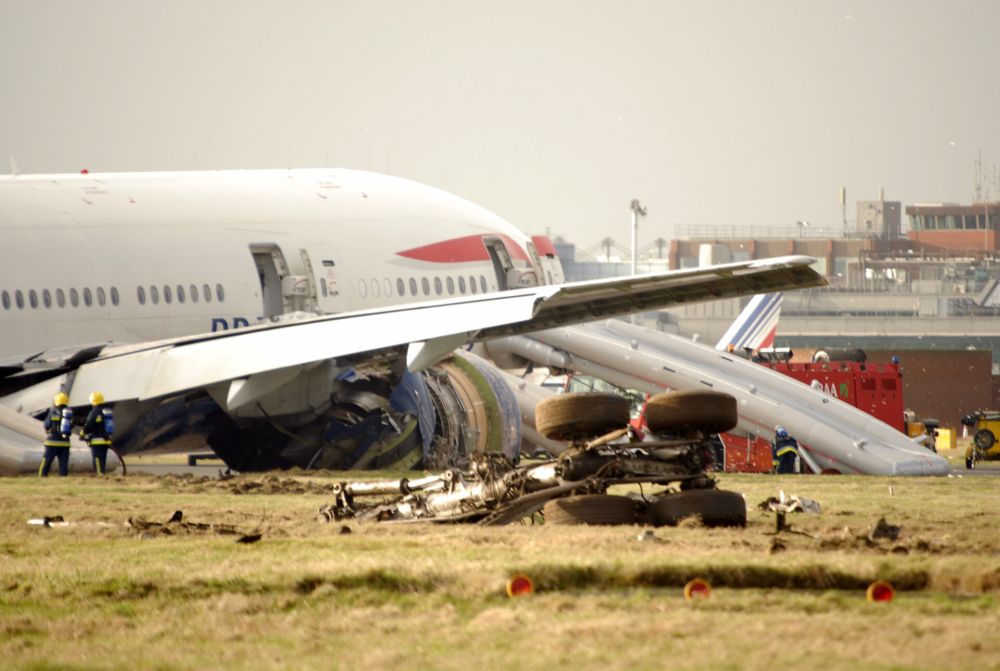Impact of Flight Crashes on Brazil: Brazil Flight Crash

Flight accidents in Brazil, while relatively infrequent, have a profound and multifaceted impact on the country. Beyond the immediate human cost, these events ripple through the economic, social, and political fabric of the nation. This section explores the consequences of these tragedies and the responses they elicit.
Economic Impact
Flight crashes in Brazil can have significant economic consequences, affecting various sectors.
- Aviation Industry: Accidents lead to investigations, safety audits, and potential grounding of aircraft, disrupting operations and impacting airlines’ revenues. They also increase insurance premiums and maintenance costs, ultimately impacting ticket prices.
- Tourism: Accidents can negatively impact tourism, particularly if they involve international flights or popular destinations. Tourists may perceive the country as unsafe, leading to cancellations and a decline in tourist arrivals, impacting the hospitality industry and local economies.
- Financial Markets: The stock prices of airlines involved in accidents can plummet, impacting investors and the overall financial market. Moreover, the government may need to allocate resources for accident investigations and compensation, affecting public finances.
Social Impact
Flight crashes have a devastating social impact, leaving families and communities in grief and distress.
- Loss of Life: Accidents result in loss of life, leaving families and communities in mourning. The impact extends beyond immediate victims, affecting extended families, friends, and colleagues.
- Psychological Trauma: Survivors and witnesses of accidents often experience psychological trauma, requiring long-term support and therapy. The emotional toll can affect individuals, families, and communities for years.
- Social Disruption: Accidents can disrupt communities, especially in remote areas where air travel is essential. They can lead to delays in essential services, such as medical aid and supplies, impacting daily life.
Political Impact, Brazil flight crash
Flight accidents in Brazil often lead to political scrutiny and public pressure for accountability.
- Government Scrutiny: Accidents trigger investigations into the causes, including potential failures in aviation safety regulations, maintenance practices, or pilot training. The government may face criticism and pressure to improve safety standards.
- Public Confidence: Accidents can erode public confidence in the aviation industry and government oversight. Public trust in air travel may decline, leading to decreased demand for flights and impacting the industry’s overall growth.
- Policy Changes: Accidents often lead to policy changes and stricter regulations to enhance aviation safety. These changes may involve new safety protocols, improved training requirements, and enhanced oversight of airlines and airports.
Role of Government Agencies and Regulatory Bodies
Government agencies and regulatory bodies play a crucial role in responding to flight accidents and ensuring aviation safety.
- Investigation: The Brazilian National Civil Aviation Agency (ANAC) investigates accidents, determining their causes and making recommendations to prevent similar incidents in the future.
- Safety Oversight: ANAC oversees the aviation industry, setting safety standards, inspecting airlines and airports, and ensuring compliance with regulations.
- Compensation: The government may provide compensation to victims and their families, depending on the circumstances of the accident and applicable laws.
Brazil flight crash – The skies above Brazil have witnessed both breathtaking beauty and tragic loss. A recent flight crash, shrouded in mystery, serves as a stark reminder of the fragility of life and the resilience of the human spirit. This event, echoing the painful history of plane in Brazil crashes , has once again brought the nation together in grief and support, as they grapple with the aftermath and search for answers.
The news of another Brazil flight crash is a grim reminder of the inherent risks involved in air travel. While accidents can happen anywhere, Brazil’s history with plane crashes is particularly concerning, as highlighted in this detailed analysis of plane crashes in Brazil.
Understanding the causes and trends behind these incidents is crucial to improving safety measures and preventing future tragedies.
